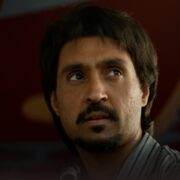CHERNOBYL (S1E5) “Vichnaya Pamyat”: The Beginning Of The End
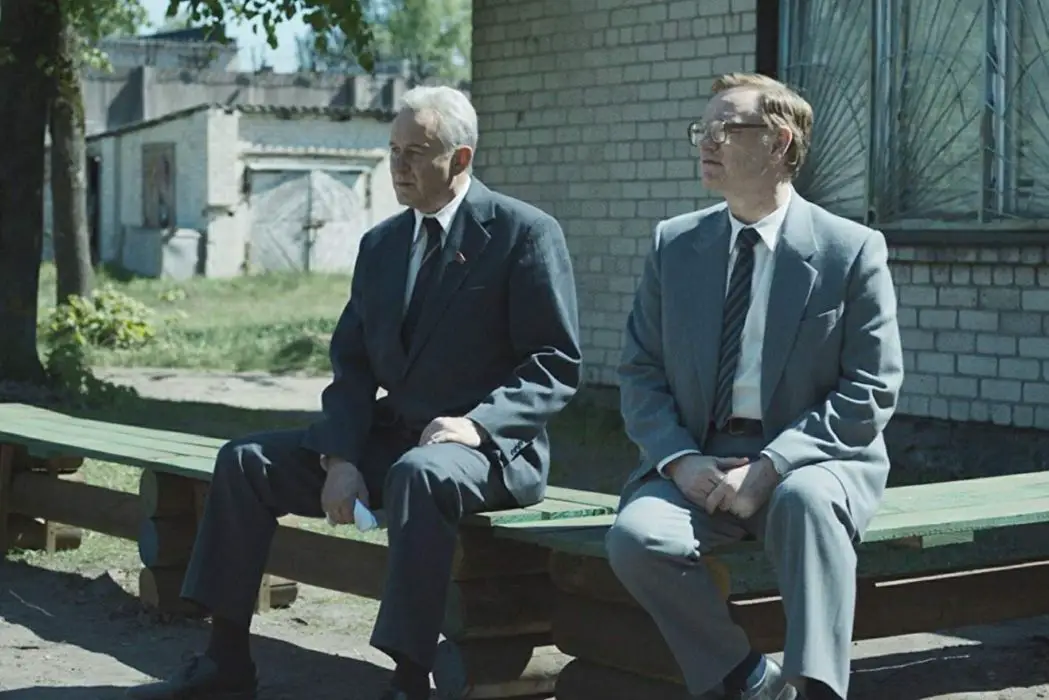
22. Film Critic and Journalist. Lover of Digital and Celluloid
The final episode in what has become the highest rated TV show ever recorded on IMDB arrives in the embodiment of HBO and Sky Atlantic’s joint mini-series, Chernobyl. Providing a painfully rich and enraging finale that has defined this series and its conviction of this atrocity, a climax that showcases the true peril of mankind’s loyalty, merit and greed to themselves and to the corruptive system that they depend on and exploit.
In the last episode, the courageous and honest Ulana Khomyuk (Emily Watson) has gathered numerous testimony and evidence to suggest the real root of the Nuclear Reactor explosion. She confides in both Boris Shcherbina (Stellan Skarsgård) and Valery Legasov (Jared Harris) to offer the public the truth at the upcoming tribunal that will hold Anatoly Dyatlovn (Paul Ritter), Bryukhanov (Con O’Neill) and Fomin (Adrian Rawlins) responsible for their negligence and actions, but there is more truth waiting in the wings and that’s the negligence of the Soviet Union itself with each arc reactor on its soil suffering from the same probably deficiency.
An Appallingly Callous Justice System
There are two major elements to his finale that are exceptional: the writing as well as the performances. These two elements run parallel in such a sufficient and engaging manner that the resulting immersive atmosphere is palpable to the finest degree. The writing throughout the miniseries from series writer Craig Mazin has been exceptional, and while it got off to a somewhat sticky start with heavy inclusions of exposition, by the fifth episode it has solidified itself as an integral aspect of production.
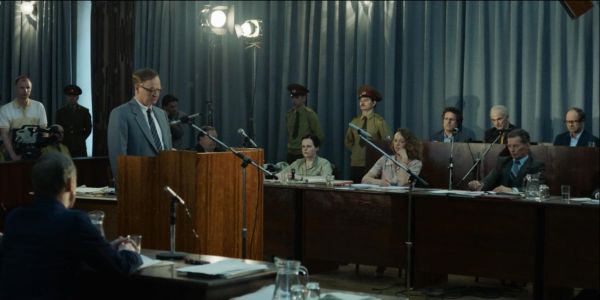
This finale in particular showcases the true strength and mixture of both educational and expositional dialogue intertwined to craft a perfect balance of delivery. Especially the heavy monologues in the sequence of the tribunal are delivered with an intense pace of slick and strong progression. It’s thick and fast but almost restrained in a slow and calculated retort. It makes for what is still easily accessible viewing but the heavy-handed degree of the situation is still strong.
Jared Harris Delivers a Stunning Performance
Jared Harris as Valery Legasov has the sizeable responsibility of delivering on such a difficult task. His performance so far has been quite stoic with small, albeit grave, strikes of the emotional whip. His stoic intensity is in full effect in “Vichnaya Pamyat”, but it has evolved to a degree of emotional dissonance of debating what should be said and what can be said.
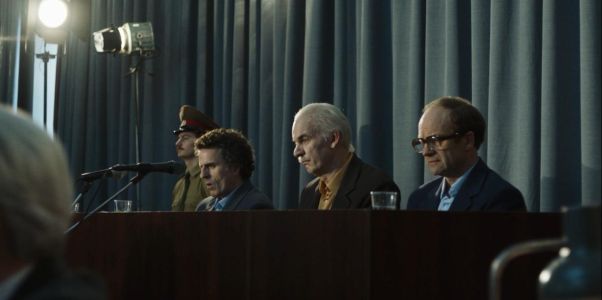
Harris has what is essentially a ten-minute monologue on the basis of a nuclear arc reactor. On paper, I’d imagine it’s utter expositional schlock and its delivery undoubtedly a stumbling block for both the pacing and engagement for its audience. Only for Harris to provide a compelling and captivating service of said dialogue to a degree of breathtaking quality. Bear in mind this is a monologue about nuclear physics. It’s a monologue on the level of Aaron Sorkin’s work on The Social Network. It is truly that good.
The Inner Torment of Grief is Rife
It’s not just the screenplay that comes into its own. The thematic emotion is really is at its highest and most vulnerable. It’s quite astonishing that even with 90% of the episode taking place in a one-room environment, the episode still contains the feeling of weighted trepidation of guilt that has followed throughout. There is misery and then there is the internal conflict of selfishness or being a martyr for those who perished doing what they were ordered.
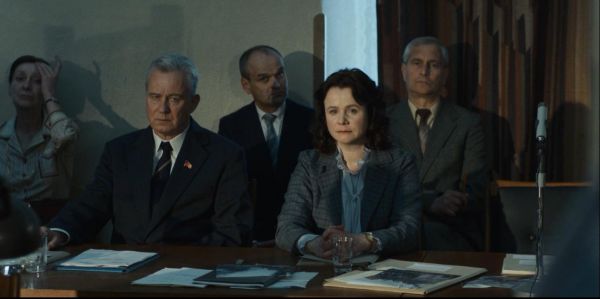
The inner torment is brought to the screen in a comprehensive and complex manifestation of the consequence of guilt. The liability and insurgence of false promises, lack of care and degree of evil that swayed in places of power. It all comes crashing down and builds itself back up in even stronger and manipulative espionage.
Chernobyl: Conclusion
The series of Chernobyl may not be at the top of the ladder for long, but after questioning its origins and potential in my review of the first episode, it feels somewhat ironic to ultimately give me the answer in such high esteem. Craig Mazin’s exceptional series will cement itself as a deeply personal and poignantly crafted piece of art that not only serves as a historical reminder but as a warning to those who are willing to pay the price of cutting corners on a world stage.
It leaves us all on the most chilling note of all. Courtesy of archive footage and log lines with information on the disaster and the horrifying information that proceeded it. If the series itself somehow failed to ignite a flame or tear from you, then these last poignant words will undoubtedly do so.
Have you seen all of Chernobyl? Do you agree with it being hailed as the greatest TV show on IMDB? Let us know in the comments below!
Chernobyl is available in full on HBOGo and HBONow and Sky Atlantic Catch Up in their respective stores.
Does content like this matter to you?
Become a Member and support film journalism. Unlock access to all of Film Inquiry`s great articles. Join a community of like-minded readers who are passionate about cinema - get access to our private members Network, give back to independent filmmakers, and more.


